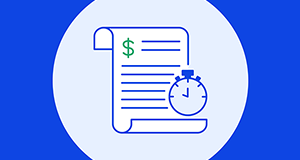What is a Loan Maturity Date?

Summary
Learn what a loan maturity date means, why it matters for your financial future and how it can help you plan ahead to stay on track with your loan payments.
In this article:
When you borrow money — whether through a personal loan, auto loan or mortgage — there’s always an end date in sight. This is called the loan maturity date, the date when your loan is scheduled to be fully paid off, assuming you make all your payments on time.
Knowing your loan maturity date can help you manage your budget and prepare for what happens at the end of the loan term.
Let’s break down how a loan maturity date works and what it means for your finances.
How does a loan maturity date work?
The loan maturity date is the day your loan, which includes the principal (original amount borrowed) and interest (cost of borrowing), is scheduled to be paid off completely.1
Both your loan origination date (the date when you received the loan) and your loan maturity date will be included in your loan agreement.2 Your monthly statement may also include the maturity date. If you can’t find the maturity date in your loan paperwork, you can contact your lender.
Knowing your loan maturity date allows you to plan your finances for the long term, so you know when you’re scheduled to pay off the loan. Having a clear “finish line” for your loan could be a source of motivation as you pay down your debt.
What happens on the loan maturity date?
On the maturity date, your loan reaches the end of its term. If you’ve made all the required payments on time and in full, you shouldn’t need to make any more payments after this date.
If your loan is secured — meaning it’s backed by collateral, something of value you possess, like a home or a car — the lender will release its claim on your asset, if the loan is paid off. For example, if you have an auto loan, the lender will typically transfer the title of the asset to you after you’ve made your final payment on the maturity date. The timeframe varies by state and lender, but it can take up to six weeks after you’ve paid off the loan to receive the title.3
What if a loan isn’t paid in full by the maturity date?
Additional interest, late fees and other penalties from missed or late payments may apply if you still owe money after the loan maturity date. Lenders typically report missed payments to credit bureaus, which can impact your credit scores.
If your loan is not paid in full by the maturity date, you’re still obligated to pay the full amount. Depending on the type of loan you have, your lender may require you to pay the remaining balance in a single lump sum, which is called a balloon payment. Other types of loans will require you to continue making payments, and you’ll be charged interest on the balance until you pay it off. In either case, you will typically pay more in both interest and late payment fees.
Can you pay off a loan before its maturity date?
Some lenders, like OneMain, allow you to pay off your loan early with no additional charges. However, others may charge you a fee called a prepayment penalty for paying off a loan before the maturity date. In some cases, this fee may still be less costly than the amount of interest you’d pay over the life of the loan. In other cases, waiting until the maturity date to pay off your loan may make more sense.
Your loan agreement must state whether your lender charges a prepayment penalty and, if so, how much it may be. If your lender doesn’t charge a prepayment fee, and you want to pay off your loan early, you can call your lender to ask for a payoff quote — a statement that tells you the exact amount needed to fully pay off your loan on a specific date.
Make a plan to pay off your loan
Knowing your loan maturity date is a great opportunity to plan, so you know when you’ll no longer have to make payments.
If you’re uncertain about your loan’s maturity date, don’t hesitate to reach out to your lender for more details. Then mark your calendar for the happy day that you’ll pay off your loan in full, opening up your budget for your financial future.
Sources:
1,2 https://www.experian.com/blogs/ask-experian/what-is-maturity-date/
3 https://www.investopedia.com/getting-car-title-after-loan-payoff-7484382
This article is for general education and informational purposes, without any express or implied warranty of any kind, including warranties of accuracy, completeness, or fitness for any purpose and is not intended to be and does not constitute financial, legal, tax, or any other advice. Parties (other than sponsored partners of OneMain Financial (OMF)) referenced in the article are not sponsors of, do not endorse, and are not otherwise affiliated with OMF.



